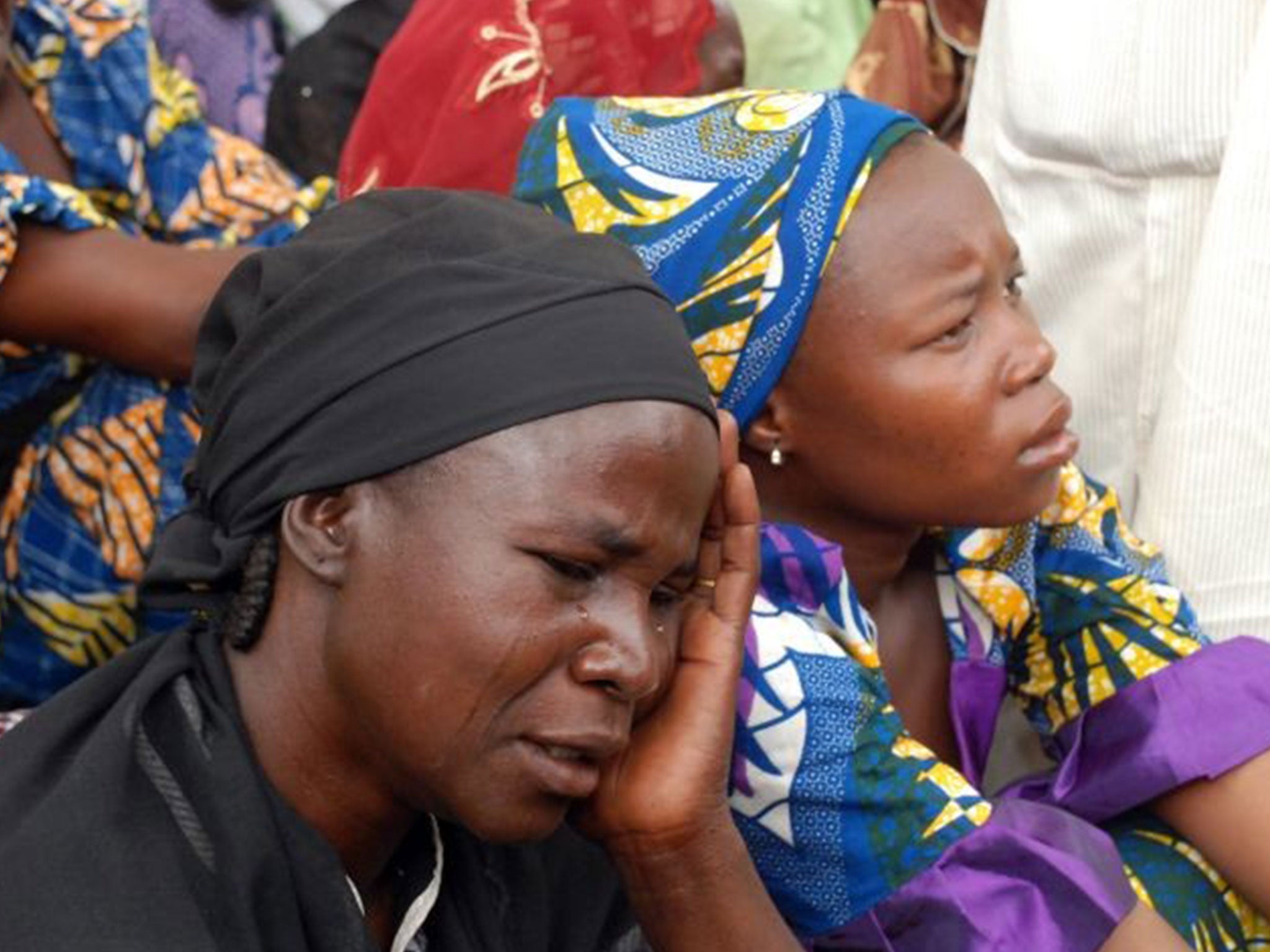What can be done about Boko Haram?
Instead of holding up signs on Twitter, our politicians could tackle the pin-striped pimps who corrode communities with their greed


Your support helps us to tell the story
From reproductive rights to climate change to Big Tech, The Independent is on the ground when the story is developing. Whether it's investigating the financials of Elon Musk's pro-Trump PAC or producing our latest documentary, 'The A Word', which shines a light on the American women fighting for reproductive rights, we know how important it is to parse out the facts from the messaging.
At such a critical moment in US history, we need reporters on the ground. Your donation allows us to keep sending journalists to speak to both sides of the story.
The Independent is trusted by Americans across the entire political spectrum. And unlike many other quality news outlets, we choose not to lock Americans out of our reporting and analysis with paywalls. We believe quality journalism should be available to everyone, paid for by those who can afford it.
Your support makes all the difference.Now it’s official: the Western world is horrified about the kidnapping of more than 200 Nigerian schoolgirls. It might have taken weeks for the outrage to erupt but Michelle Obama says she and her husband are heartbroken and David Cameron is proud to join the campaign to bring them back. Celebrities compete to show concern and social media is ablaze with anger.
It is easy to sneer at pop stars and politicians who presume that holding up a sign on Twitter passes for a profound challenge to a terror group that has brought five years of carnage to parts of Africa’s most populous nation. But I guess we can be thankful that the fleeting gaze of the globe has fallen on Boko Haram, which has slaughtered and maimed so many innocent people while driving thousands more school pupils from burned-out institutions.
Inevitably, there are questions over whether “hashtag activism” really changes anything. The brilliant Nigerian-American writer Teju Cole compared it to lighting candles as a cure for cancer, while Sudanese journalist Nesrine Malik satirised the five stages of Western reaction to such events: Ignorance, Wikipedia wisdom, outrage, #solidarity hashtag, tedious self-obssession. There is truth to such criticisms.
In the last few days a major US broadcaster told viewers that Boko Haram was operating in Kenya, one broadsheet columnist wrote that she had never heard of the group until a few weeks ago and several supposed experts used the abuse of these girls to smear the whole of Africa with the usual stereotypes. In the same way that alarming events in Donetsk tell us little about daily life in Dusseldorf or Derby, the complexities of northern Nigeria should not be used to generalise about an entire continent of immense complexity and diversity.
Meanwhile the cry goes up in the West that “something must be done”, although solutions to the grinding poverty, unemployment and social dislocation that gave birth to Boko Haram must come from within Nigeria itself. The burgeoning conflict-resolution industry, which one participant admitted to me was something of a misnomer, senses a new opportunity. And Western military forces fly in to help.
Hopefully their expertise and technology can help find the kidnapped schoolgirls quickly. But it is worth recalling there are still American special forces in Uganda hunting for Joseph Kony, the warlord who became the sudden focus of social-media outrage two years ago. Indeed, there should be rather more questioning of the soaring Western military presence across Africa, the new frontline in the war on terror, with which we prop up some dubious allies with often-damaging consequences for their citizens.
Look at Uganda, where we back a hideously kleptocratic government, or Ethiopia, where we fund a repressive one-party regime. It seems we have learned few lessons from the Cold War. Will the West now give military and financial support to the bungling Nigerian security forces that inflamed turmoil in the north with brutal crackdowns and extra-judicial killings? The US talks about boosting Nigeria’s military to fight Boko Haram, yet just last year officials condemned its “gross human rights violations”.
British ministers last week spoke of the need for “capacity-building” in Nigeria. As evidence they can point to giving it the biggest aid increase of any major recipient nation. Yet even our own aid watchdog has pointed out that the huge sums of money thrown at schools there have failed to lead to any improvements in learning. This is unsurprising since the country’s core problems, revolving around poor governance and social justice, are worsened by handing over huge sums of free cash. Meanwhile our vile visa regime deters entrepreneurs trying to create wealth through trade (along with those wishing to visit their relatives in this country or spend money in our shops).
Yet there is something significant Britain could do to help this fast-growing west African state and dampen support for Boko Haram’s child traffickers and killers. Nigeria is a wealthy nation, the world’s 24th-biggest economy, with lucrative deposits of oil. Instead of pumping money into a corrosive political system that fails to deliver decent public services and allows poverty to fester, how about taking steps to stop the crooks in charge from stashing their stolen loot in our banks, our cities and our tax havens?
The World Bank believes £240bn went missing from state coffers post-independence, an obscenity in a country in which most people still live in poverty. A significant share of this flows through Britain and its dependencies. After former military ruler Sani Abacha helped himself to an estimated £2.5bn, nearly £200m was found recently in Jersey bank accounts and another £60m is believed to be in Britain. When a former state governor was jailed for money-laundering two years ago, his properties included seven homes in the UK.
Instead of pouring money into the pockets of a thieving political elite, we should divert it into a sustained clampdown on British bankers, lawyers and property barons who launder the dirty money leached out of nations such as Nigeria. Instead of holding up signs on Twitter, our politicians could tackle the pin-striped pimps who corrode communities with their greed, and the tax havens flying our flag. But hashtag activism is so much easier than real action.
Join our commenting forum
Join thought-provoking conversations, follow other Independent readers and see their replies
Comments